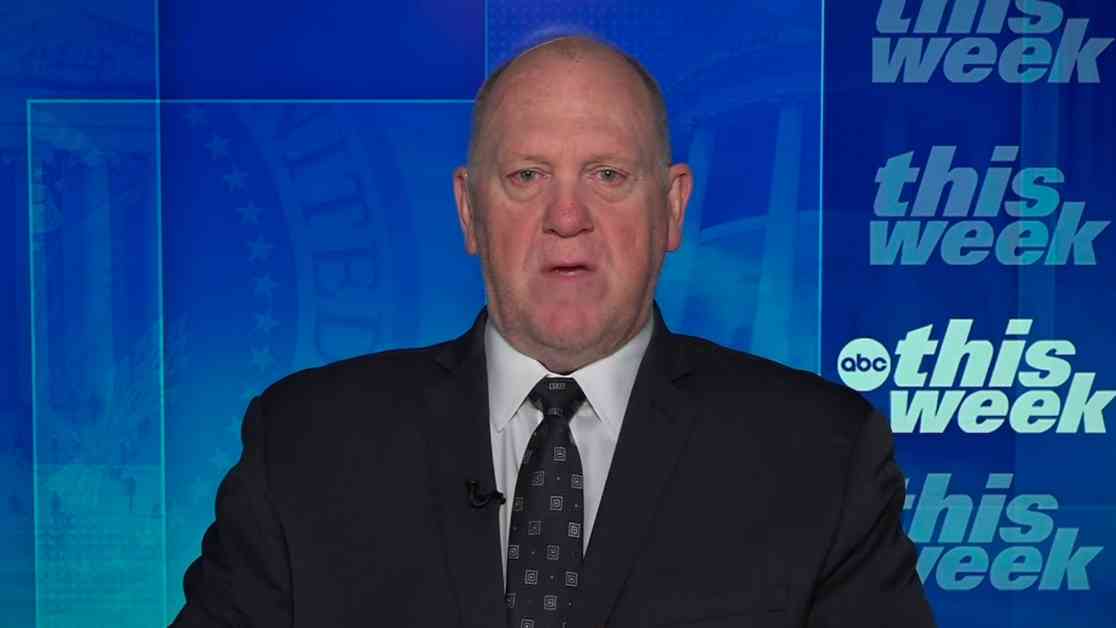Tom Homan, the border czar for President Donald Trump, made a bold assertion on Sunday, promising that the Trump administration would comply with court orders related to the deportation of undocumented migrants from the United States. This statement comes after a week of legal battles over the administration’s use of the wartime Alien Enemies Act to carry out deportation flights.
The situation first arose when a federal judge in Washington, James Boasberg, questioned whether the Trump administration had defied an earlier court order to temporarily halt deportation flights under the Alien Enemies Act. This concern arose when Venezuelan detainees were flown to El Salvador despite the judge’s directive to turn their flights around.
Homan defended the administration’s actions, claiming that all those deported to El Salvador were known gang members, most notably from the Venezuelan gang Tren de Aragua, which the administration has classified as a terrorist organization. He proudly stated in an interview on ABC’s “This Week” that the flight had removed 240 terrorists from the United States.
However, family members of some of those deported to El Salvador vehemently deny any association with gangs, raising questions about the accuracy of the administration’s claims. Homan, when pressed for specific information to support the administration’s position, deferred, indicating that such matters would be resolved in court.
Despite Homan’s assurance that the Trump administration would adhere to court orders, he made a controversial statement declaring, “I don’t care what the judges think as far as this case.” This remark reflects the administration’s stance on prioritizing national security and public safety above judicial opinions.
### Border Security and Due Process
In a subsequent interview segment, Homan addressed concerns about due process and the identification of gang members among those targeted for deportation. He highlighted the challenges in verifying gang affiliation, noting that many gang members may not have criminal histories readily available in databases. Homan emphasized the importance of targeting high-risk individuals to safeguard the nation against potential threats.
The case of Jerce Reyes Barrios, who was allegedly deported due to his affiliation with a gang based on a tattoo, raised further questions about the accuracy of the administration’s assessments. Homan reiterated that every individual on the deportation flight to El Salvador was deemed a member of the Tren de Aragua gang based on thorough intelligence reports and criminal investigations conducted by ICE officers.
### Military Deployment and Border Security
Shifting gears to the broader border security strategy, Homan addressed the extensive military presence at the border, with over 10,000 U.S. troops deployed to support border operations. He also mentioned the deployment of Navy destroyers to patrol the waters surrounding the border, underscoring the multifaceted approach to securing the nation’s borders.
When questioned about the duration of such military deployments, especially as border apprehensions have decreased significantly, Homan reaffirmed the administration’s commitment to border security. He emphasized the need to adapt to evolving tactics employed by smuggling groups, including potential shifts to maritime routes, necessitating a comprehensive approach involving the Coast Guard, CBP maritime patrol, and Navy assets.
In conclusion, Homan’s interviews shed light on the complexities of border security operations, legal challenges surrounding deportation flights, and the administration’s unwavering focus on combating national security threats. As the debate continues in the courts and the public sphere, the intersection of due process, national security imperatives, and judicial oversight remains a critical issue in the ongoing immigration discourse.














